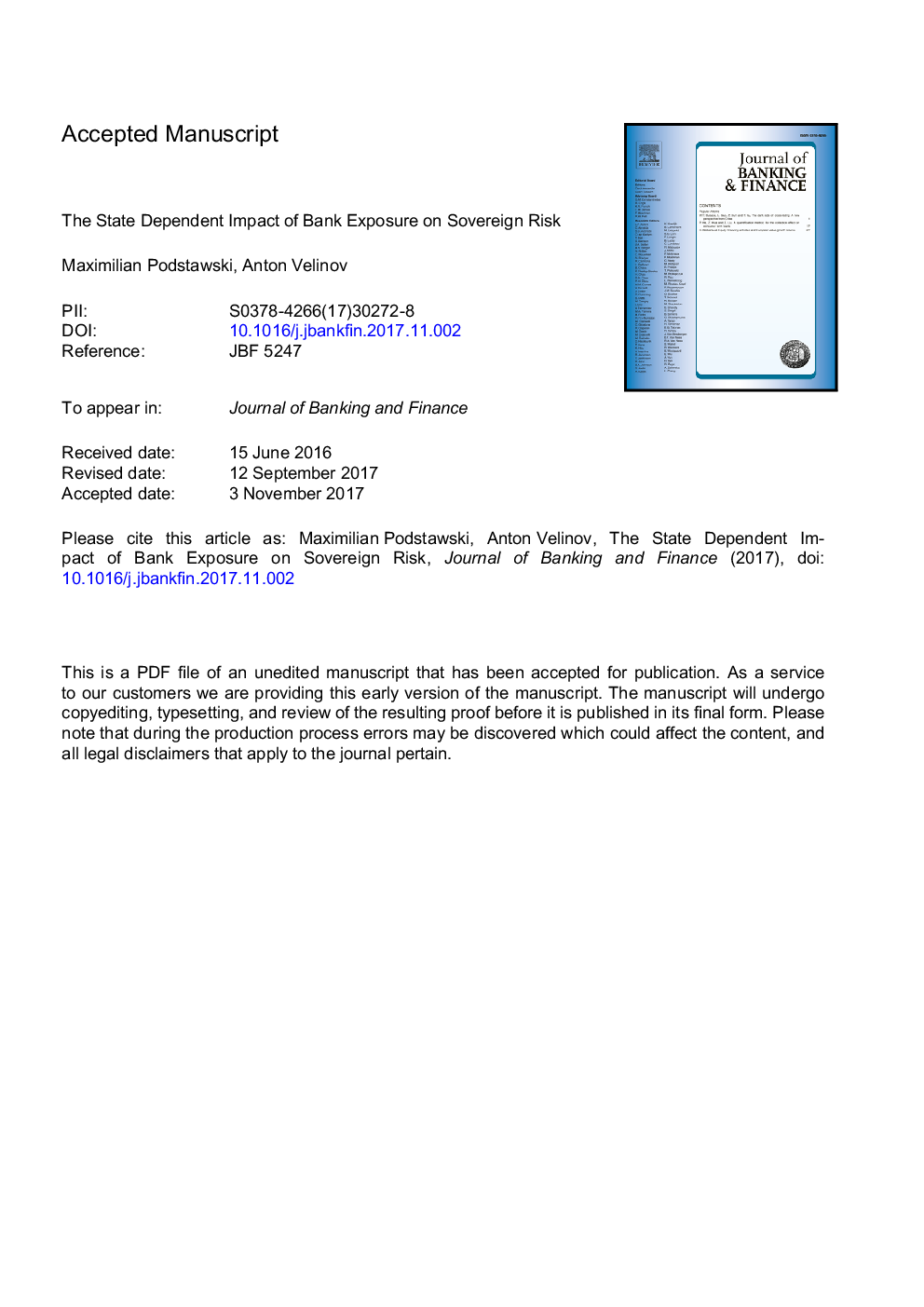| Article ID | Journal | Published Year | Pages | File Type |
|---|---|---|---|---|
| 7356614 | Journal of Banking & Finance | 2018 | 33 Pages |
Abstract
The theoretical literature remains inconclusive on whether changes in bank exposure to the domestic sovereign have an adverse effect on the sovereign risk position through a diabolic loop in the sovereign-bank nexus, or reduce perceived default risk by acting as a disciplinary device for the sovereign. In this paper we empirically analyze the impact of exogenous changes in bank exposure on the risk position of the sovereign within a Markov switching structural vector autoregressive in heteroscedasticity (MSH-SVAR) framework for a set of EMU countries. We add to the methodological literature by allowing for regime dependent shock transmissions according to the volatility state of the financial system. Finding support for both, a stabilizing and a destabilizing effect, we document a clear clustering among the country sample: rising bank exposure increased default risk for the EMU periphery, but decreased credit risk for the core EMU countries during times of financial stress.
Keywords
Related Topics
Social Sciences and Humanities
Economics, Econometrics and Finance
Economics and Econometrics
Authors
Maximilian Podstawski, Anton Velinov,
